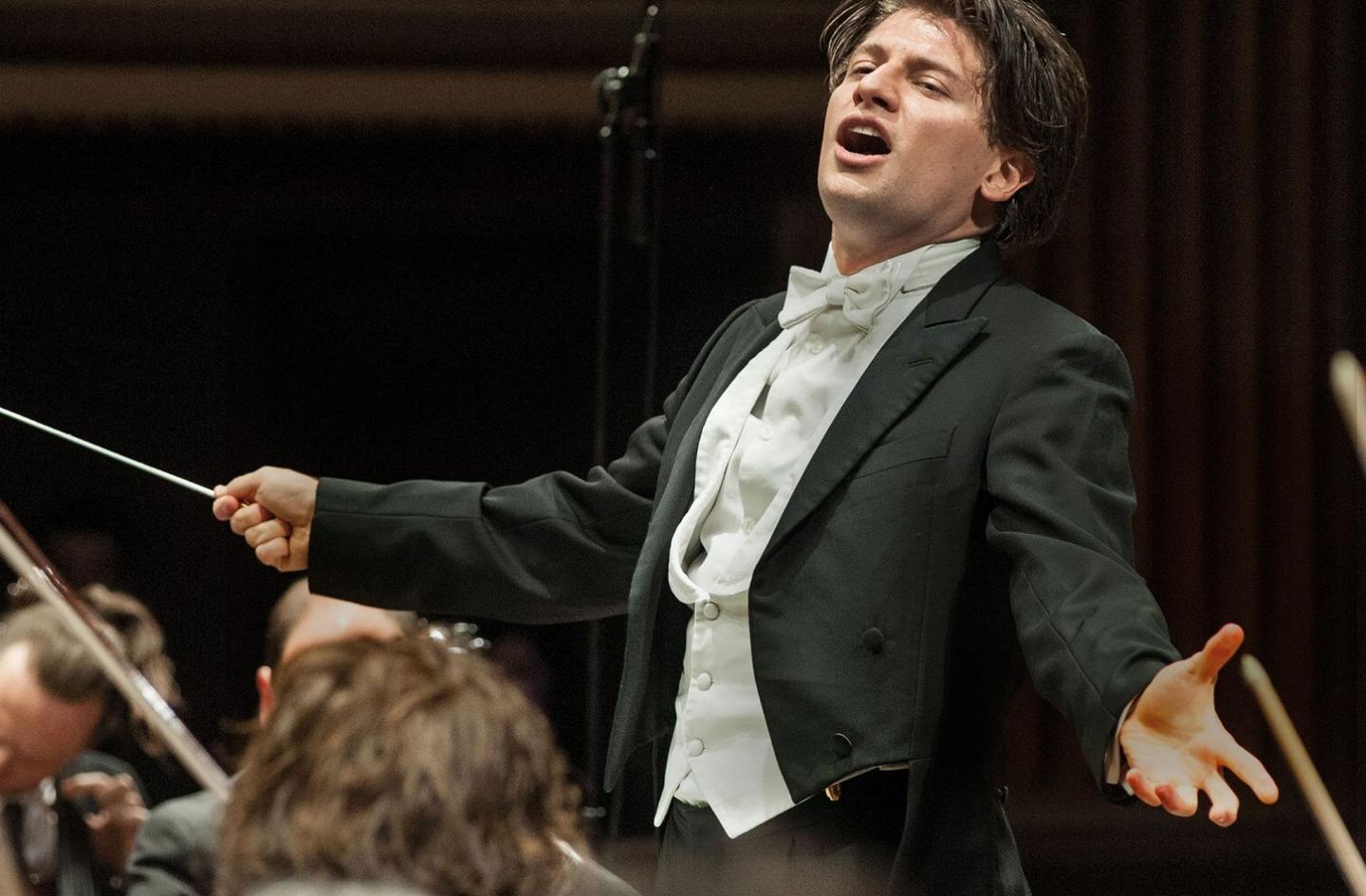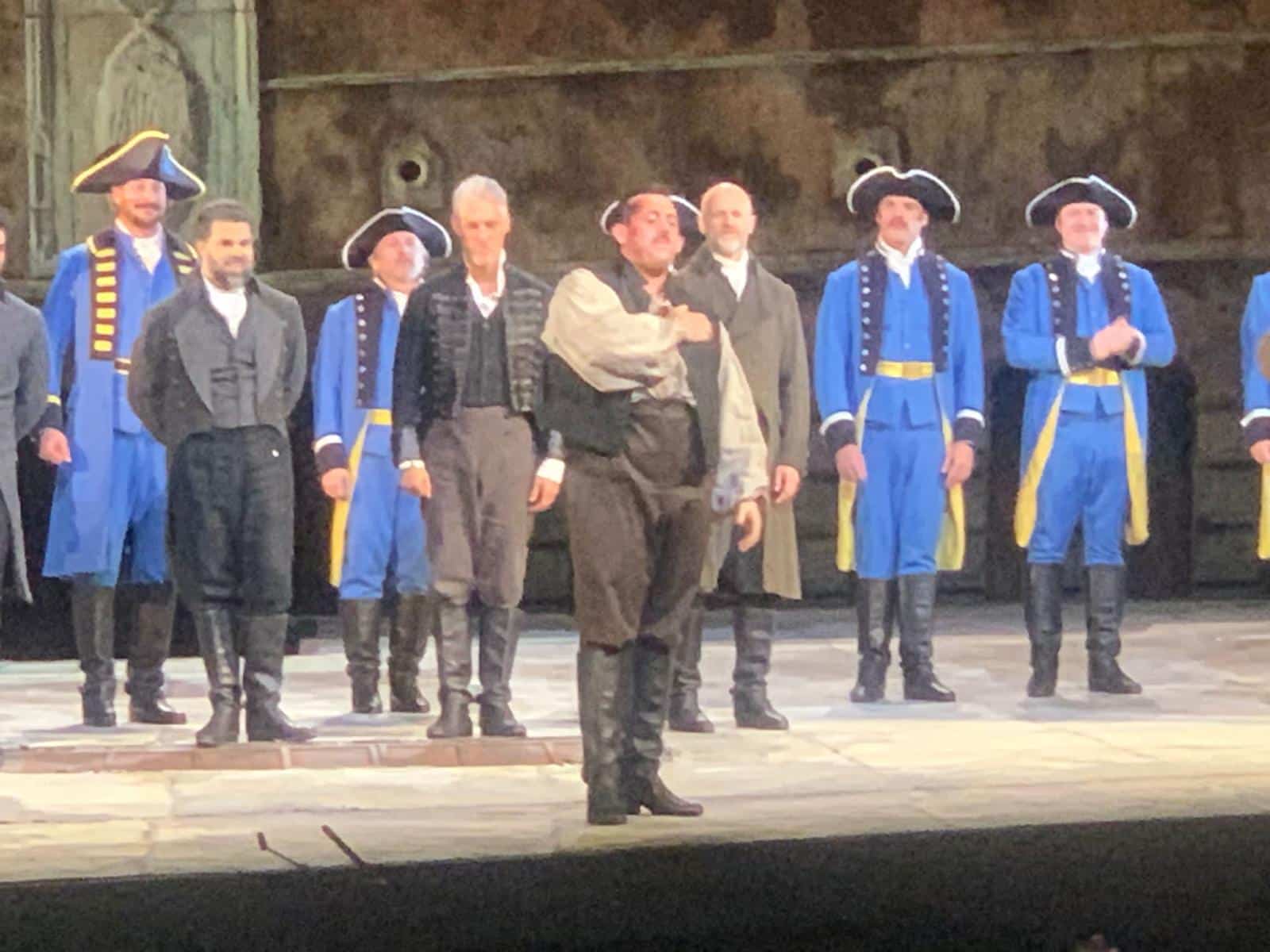A small, forgotten orchestral war
mainWhile the Philadelphia Orchestra enters Chapter 11 bankruptcy, the Syracuse Symphony goes out of business and the Brazil Symphony Orchestra is put on ice, spare a thought for the orchestral musicians at the Teatro Colon in Buenos Aires, whose strike was supported last month by no less than Placido Domingo.
My name is Carlos Fernandez, clarinet and bass clarinet at the Orquesta Estable, Teatro Colon
Here is an update on Teatro Colón. Both its orchestras, Orquesta Estable and Buenos Aires Philharmonic have been asking for a raise since last year. The Director and the Major not only refused to listen to their demands for better salaries and proper working conditions (the 150 million dollar renovation is not finished yet, the Theatre does not cover instrument insurance and maintenance, etc.), but when the strike started they decided to file a lawsuit for $14 million U.S. dollars against eight union representatives (four orchestra musicians, three choir members and the theatre’s official photographer) and started the administrative procedures for their dismissal instead. Tickets for performances at Teatro Colón are in the same price range as world-class operas around the world but the musicians’ salaries are barely around $1.300 USD a month. The prices were unequally raised since the last season at the Theatre in 2006: orchestra seats sell for $300 USD, 144% more, and standing tickets for $10 USD, 700% more than before.
The strike started last year at the end of the season when a government representative said that there were no plans for a raise in the 2011 budget. The director decided to start the new season without the orchestra, and staged Ligeti’s Le Grand Macabre with two pianos and percussion. Placido Domingo visited Buenos Aires for a recital at Teatro Colón and outdoors, the orchestra refused to play at the Theatre but agreed to play in the streets, as a good will gesture to Domingo and the people, asking the government to start a proper negotiation. When Domingo left 41 musicians on yearly contracts were were fired on the pretense that they were not permanent staff and if the permanent staff was on strike they were not needed.
The f
our key points for negotiation are: 40% raise, withdrawal of the millionaire lawsuit, no layoffs, no punishments (some members of the orchestra reported that their salaries showed discounts for the days on strike). A few meetings with government officials (the Director of the theatre not included) followed, but they have not reached an agreement.
Moreover, the government announced the 41 musicians would be hired again if the orchestra lifted the strike. The strike is “on hold” but not officially lifted, so they started rehearsing. At this time the 41 musicians are working for free, they have not signed their contracts and have not perceived their salaries.
On top of that, we have heard that the Director has contacted the Zagreb Philharmonic Orchestra to play the next title in our season, The Magic Flute. At this point it is clear that they have the money to hire a foreign orchestra, pay their fees plus all the traveling, cargo, hotel accomodations, etc. but they are not willing to give the local orchestras a raise. The only reason behind this could be either the idea to dismantle one or both orchestras, in order to make suspicious expensive contracts with foreign orchestras, agents and third parties.
Placido Domingo once stated that Teatro Colón was one of the few opera houses around the world that could produce everything in house, it was a self sufficient theatre-factory. The workshops are not back at the historic building, the renovation plans reduced the production areas around 60%, even the dressing rooms areas were redesigned for less musicians, singers and dancers than our permanent staff.
We would like to call international attention to this, Teatro Colón has historically been the most important opera house in Latin America, our heritage as a public theatre with in house production, permanent staff, open and accessible for all citizens is at risk.
Thank you very much.





Keith Jarrett, pianist, also made a stand – he stopped mid concert at Teatro Colón, or before it had even got going, to ask why with all the money spent on the restoration of the theatre they could not even bother to buy a decent piano. He refused to play.
A lot of money seems to have disappeared into various pockets. It should be noted that this is not the work of the national government but the local government of the city of Buenos Aires.
Actually, Jarrett played his concert, complaining all along. That piano was used by demanding pianists as Baremboin and Argerich just last year. And Jarrett chose that piano 3 hs before the show and did not complain at that time.
I was at that concert. Jarrett was unhappy because his improvisations were not good enough, he even shouted “where are you!”, referring to the music…
It’s sad. Instead of accepting that he couldn’t find his inspiration as a natural thing, he stopped in the middle of pieces to complain about cameras, coughing, the piano, etc.
Even if the piano was not excellent (it was more than decent, as I remarked before), it was his attitude that made it impossible to relax and listen to the music. The feeling through all the performance was of tension, and a bad one…sad.
Mr. Jarret did not refuse to play. In fact, his concert wad ver y good , in spite of his bad manners and his famous changes of humour . A lot of great pianists
made us enjoy the magic of good music without saying a word about Mr. Steinway ‘ s instrument.
Political aspects has nothing to do with good manners.
And after all, music is above all.
Thank you ver y much.
F.de la Riestra